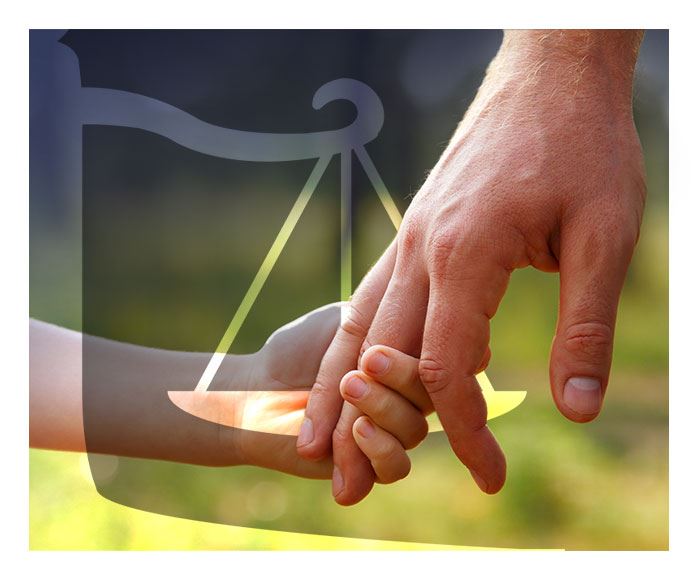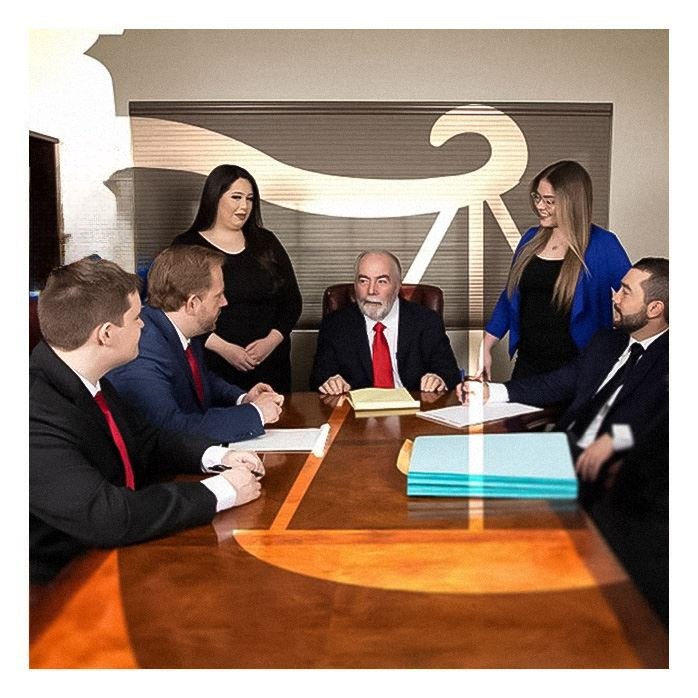Las Vegas Contested Divorce Lawyer
What Is a Contested Divorce?
A contested divorce is a complicated form of divorce in which the spouses disagree on at least one issue of the prospective filing, such as:
A contested divorce usually involves a lengthy court battle depending on the number of issues at stake. If this is the case for you, you need to ensure that you have a trustworthy Las Vegas divorce attorney who will stand behind you during divorce proceedings.
Legal Counsel When You Need It Most
At Leavitt Law Firm, we are committed to helping our clients through even the most complex contested divorce cases.
We know how painful—or at the very least stressful—this time can be. Emotions run high in these hard-fought divorces. But you do not have to go at it on your own. Let us support you. We will make you a priority at every single step of the way.
Struggling with a Contested Divorce? Don’t face it alone. Contact us at (702) 996-6052 for experienced legal support today!

How Long Will My Contested Divorce Take?
The average contested divorce takes about 4 months to finalize.
It is, however, normal for a contested divorce to drag on if one party is refusing to respect the other's rights.
Contested & Uncontested Divorce: Which Is Faster?
Uncontested divorces are typically faster than contested divorces.
In an uncontested divorce, a lawyer will draft a marital settlement agreement, as well as any other needed paperwork. The lawyer and the individual requesting the divorce will then review the settlement, finalize the paperwork, and send a copy to the other party.
In a contested divorce, both parties have to file court papers that display what they want out of the divorce. Contested divorces have a reputation for being heated, expensive, and drawn out, as couples continue to fight over settlement issues.
It is most beneficial for couples to reach out to an experienced Las Vegas contested divorce lawyer who can speed up the process—and save all the involved parties time and money.
How Does a Contested Divorce Work?
A divorce is officially contested when your spouse disagrees on any aspect of the filing. Once papers are served the receiving party has 30 days to respond to the petition. If you and your spouse fail to resolve the conflict, a judge will be assigned to the case.
A contested divorce involves the following procedures:
- You or your spouse will file a complaint, which is delivered to the other spouse;
- After filing the complaint, the other party has 30 days to respond with an answer;
- After receiving a response to the complaint, a case management conference is held;
- The presiding divorce court will enter a case management order; and
- Once an order is established, the contested divorce will undergo the discovery phase.
The discovery phase could take several months to complete. If children are involved in your divorce, a child custody evaluation will likely take place. If you and your spouse are unable to resolve your issues, your filing will go to trial to settle the terms of the divorce.
Common Reasons for Contested Divorces
A contested divorce happens when spouses cannot agree on key issues. Some of the most common reasons include:
Child Custody and Parenting Disputes
- Parents may disagree on who gets primary custody or how much visitation time the other parent should have.
- One parent may feel the other is unfit to care for the child due to past behavior, lifestyle, or other concerns.
Disputes Over Alimony (Spousal Support)
- One spouse may request financial support, while the other believes it is unnecessary.
- Disagreements often arise over how much should be paid and how long payments should last.
Division of Property and High-Value Assets
- Dividing assets such as homes, businesses, and retirement accounts can be complex.
- One spouse may try to claim a larger share of marital assets than the other believes is fair.
Hidden Assets and Financial Dishonesty
- Some individuals try to hide money or property to avoid sharing it in the divorce.
- If financial dishonesty is suspected, forensic accountants may be needed to uncover missing assets.
Emotional Conflicts and Resentment
- Some divorces drag on because one or both spouses refuse to compromise due to anger or hurt feelings.
- Personal grievances can make settlement negotiations difficult, leading to lengthy court battles.
How to Prepare for a Contested Divorce
Preparation is key to protecting your rights in a contested divorce. Here’s what you can do:
1. Gather Financial and Property Documents
- Collect bank statements, tax returns, pay stubs, and mortgage records.
- Document joint and individual assets to ensure fair property division.
2. Keep Records of Communications
- Save text messages, emails, and voicemails that may be relevant to the case.
- Keep a log of interactions with your spouse, especially if conflicts arise.
3. Understand Your Custody and Support Rights
- Research Nevada’s child custody laws and how courts decide support payments.
- If you’re seeking child custody, be prepared to show proof of involvement in your child’s life.
4. Work with an Experienced Divorce Attorney
- A knowledgeable lawyer can explain your rights, negotiate on your behalf, and help build a strong case.
- Having legal support can prevent costly mistakes and unnecessary delays.
The Role of Mediation in Contested Divorces
Mediation is often used to resolve disputes before going to court. It involves a neutral third party helping spouses find a fair agreement.
Can Mediation Help Resolve Disputes Before Trial?
- Mediation allows both parties to express their concerns in a structured setting.
- It can lead to compromises on custody, support, and asset division without court intervention.
What Happens If Mediation Fails?
- If no agreement is reached, the divorce moves to trial, where a judge makes final decisions.
- Trial divorces can be lengthy, expensive, and emotionally draining.
Benefits of Mediation
- Saves time and money compared to a court battle.
- Reduces stress by allowing more control over the outcome.
- Helps preserve better communication and co-parenting relationships post-divorce.
If you're facing a contested divorce, getting legal guidance early can help make the process smoother. Contact us today to discuss your options!
Contested Divorce Laws in Nevada
Contested divorces in Nevada involve legal proceedings where spouses cannot agree on key issues, necessitating court intervention. Navigating this complex process requires an understanding of the state's laws governing divorces.
1. Grounds for Divorce: Nevada is a no-fault divorce state, meaning neither party needs to prove fault for the divorce to be granted. Frequent reasons for divorce include incompatibility or residing apart for a minimum of one year.
2. Property Division: In contested divorces, the court determines the equitable distribution of marital assets and debts. Nevada adheres to the concept of fair distribution, which may not necessarily entail an equal division but is determined to be just by the court.
3. Spousal Support: Alimony, or spousal support, may be awarded based on factors such as the length of the marriage, each spouse's financial situation, and contributions to the marriage.
4. Child Custody and Support: The court prioritizes the best interests of the child when deciding custody and support matters. Considerations encompass the child's connections with each parent, the level of stability, and the capacity to create an appropriate environment.
5. Legal Representation: Given the complexity of contested divorces, legal representation is highly recommended. Both parties should enlist the assistance of a seasoned family law attorney to navigate the complexities of the legal process and champion their respective interests.
Navigating contested divorce laws in Nevada involves a comprehensive understanding of legal requirements and an ability to present a compelling case. Our experienced Las Vegas contested divorce attorneys can help.
Frequently Asked Questions (FAQ) About Contested Divorces in Nevada
What if my spouse refuses to sign the divorce papers?
- If your spouse refuses to sign or respond to the divorce petition, the court may proceed with a default divorce, granting you a final judgment based on your filing. However, this depends on specific circumstances, so consulting an attorney is important.
Can I date while going through a contested divorce?
- Legally, you can date before your divorce is finalized, but it may affect your case—especially if child custody or spousal support is contested. Courts may view a new relationship as a distraction from parental responsibilities or financial resources being used on a new partner instead of alimony.
Do both spouses have to appear in court for a contested divorce?
- Yes, in most cases, both spouses must attend court hearings if the divorce is contested. If one spouse fails to appear, the judge may rule in favor of the attending party.
What if my spouse is hiding assets?
- If you suspect your spouse is hiding money or property, your attorney can request financial disclosures, subpoenas, and forensic accounting to uncover hidden assets. Courts do not tolerate dishonesty in financial matters and may penalize the spouse who attempts to conceal assets.
How does a judge decide who gets what in a contested divorce?
- Nevada follows community property laws, meaning all marital assets are typically divided equally unless there is a valid reason for an unequal split. Factors such as contributions to the marriage, financial needs, and debt responsibility may influence the judge’s decision.
Can my spouse prevent me from seeing my children during a contested divorce?
- Unless there is a court order restricting your visitation, your spouse cannot legally keep your children from you. If they attempt to do so, you can request emergency court intervention to enforce your parental rights.
How do I know if my divorce is truly contested or if we can settle?
- If you and your spouse disagree on even one major issue, your divorce is technically contested. However, you may still be able to reach agreements through negotiation or mediation to avoid a full trial.
Protect Your Rights in Divorce! Our attorneys are ready to fight for you. Contact us now at (702) 996-6052 for a consultation.

Family Law
We Stand Behind our Clients
When divorce becomes a contested matter, you want to know there is an experienced professional in your corner fighting for you and providing critical insight. At Leavitt Law Firm, we provide Las Vegas clients with the benefit of our more than 30 years of combined experience and have been recognized as Best of Las Vegas 2017. Trust us to handle your contested divorce and help you work reach the best possible resolution.



Solutions-Driven Family Advocacy for a Better Tomorrow
-
Communicative
We keep you updated throughout the duration of your case.
-
Solution-Oriented
We help pursue the best possible outcome for our clients.
-
Reputable
Our name carries weight in Clark County courtrooms.
-
Service-Oriented
We strive to provide our clients the best possible experience.
-
Compassionate
We sincerely care and understand your situation.
-
Innovative
Crafting Legal Solutions Tailored to Your Family.


They were always available to me for questions and advice, my children and I are most grateful for all of their help during this transitional time. They were clear with the law and fought hard so that my family was taken care of and treated fairly.
Contact Us Today
Start With A Confidential Consultation



















22.2201240940550.jpg)